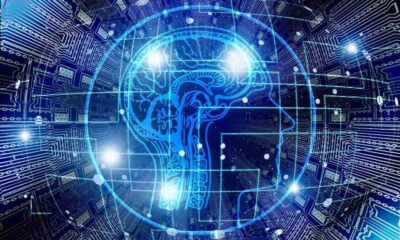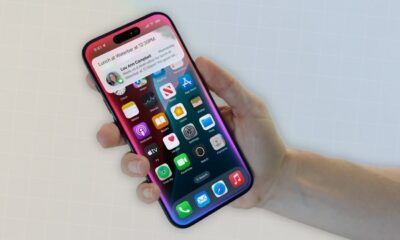Health
Man Hospitalized After Following AI Advice on Salt Substitution

A 60-year-old man found himself in the emergency room after seeking advice from ChatGPT on how to replace table salt. His attempt to eliminate sodium chloride led to hallucinations and paranoia, prompting medical intervention. This incident highlights the potential risks associated with relying on artificial intelligence for health-related guidance.
In a case report published in March 2024 in the Annals of Internal Medicine, doctors from the University of Washington detailed the man’s ordeal. They emphasized that while AI tools can provide information, they are not always reliable in medical contexts. The authors, including Audrey Eichenberger, Stephen Thielke, and Adam Van Buskirk, stated, “It is important to consider that ChatGPT and other AI systems can generate scientific inaccuracies, lack the ability to critically discuss results, and ultimately fuel the spread of misinformation.”
The patient’s journey began when he visited an emergency room, convinced that his neighbor was poisoning him. Over the first 24 hours of his hospital stay, he exhibited increasing paranoia along with visual and auditory hallucinations, which ultimately led to his involuntary admission to a psychiatric unit. Once stabilized, he disclosed to medical staff that he had been experimenting with his diet after researching the health risks associated with sodium chloride.
Instead of following standard advice to reduce sodium intake, the man sought to eliminate chloride from his diet entirely. He turned to ChatGPT for recommendations on suitable substitutes. The AI suggested using sodium bromide, a chemical typically utilized in water treatment and veterinary medicine. This substance, which resembles table salt, is not safe for human consumption.
“Unfortunately, we do not have access to his ChatGPT conversation log, and we will never be able to know with certainty what exactly the output he received was,” the authors noted. They further explained that when they consulted the same AI model, it also mentioned bromide as a potential replacement for chloride, but failed to provide any health warnings or context.
As a result of replacing sodium chloride with sodium bromide over three months, the patient developed symptoms consistent with bromism, a condition arising from excessive bromide consumption. His bromide levels were measured at an alarming 1,700 mg/L, far exceeding the normal range of 0.9 to 7.3 mg/L.
During his three-week hospital stay, doctors monitored his electrolytes and addressed deficiencies in important nutrients such as vitamin C and B12. The incident raises concerns about bromism’s resurgence, as it had largely diminished since the U.S. Food and Drug Administration banned bromide in the 1980s. Researchers noted that bromide is now found in some unregulated dietary supplements, which could contribute to the condition’s reappearance.
The authors concluded that while AI tools have the potential to bridge gaps in health communication, they also pose significant risks, particularly when users lack the necessary context to interpret the information accurately. They stated, “As the use of AI tools increases, providers will need to consider this when screening for where their patients are consuming health information.”
In response to this incident, OpenAI, the company behind ChatGPT, reiterated that their platform is not intended for medical advice. They affirmed that their terms explicitly state ChatGPT should not be used for treating health conditions, and they are implementing measures to encourage users to consult healthcare professionals for guidance.
-

 Politics4 weeks ago
Politics4 weeks agoSecwepemc First Nation Seeks Aboriginal Title Over Kamloops Area
-

 World5 months ago
World5 months agoScientists Unearth Ancient Antarctic Ice to Unlock Climate Secrets
-

 Entertainment5 months ago
Entertainment5 months agoTrump and McCormick to Announce $70 Billion Energy Investments
-

 Science5 months ago
Science5 months agoFour Astronauts Return to Earth After International Space Station Mission
-

 Lifestyle5 months ago
Lifestyle5 months agoTransLink Launches Food Truck Program to Boost Revenue in Vancouver
-

 Technology3 months ago
Technology3 months agoApple Notes Enhances Functionality with Markdown Support in macOS 26
-

 Lifestyle3 months ago
Lifestyle3 months agoManitoba’s Burger Champion Shines Again Amid Dining Innovations
-

 Top Stories2 months ago
Top Stories2 months agoUrgent Update: Fatal Crash on Highway 99 Claims Life of Pitt Meadows Man
-

 Politics4 months ago
Politics4 months agoUkrainian Tennis Star Elina Svitolina Faces Death Threats Online
-

 Sports5 months ago
Sports5 months agoSearch Underway for Missing Hunter Amid Hokkaido Bear Emergency
-

 Politics5 months ago
Politics5 months agoCarney Engages First Nations Leaders at Development Law Summit
-

 Technology5 months ago
Technology5 months agoFrosthaven Launches Early Access on July 31, 2025





















